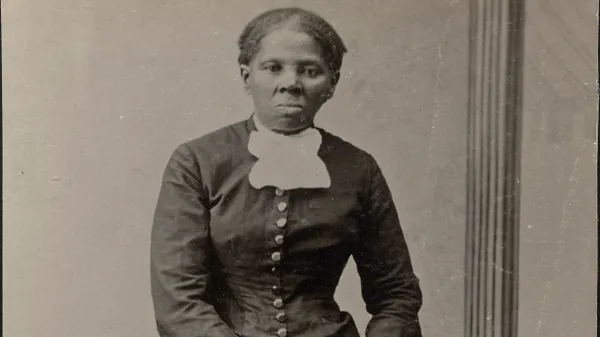Biddy Mason’s journey from slavery to becoming one of the most significant figures in Los Angeles is proof of her fortitude, tenacity, and kindness.
Overcoming hardship, she not only gained her independence but also established a reputation as a prosperous businesswoman, philanthropist, and civic leader whose influence endures to this day.
Early Life: From Enslavement to Freedom
Biddy Mason was born into slavery in Hancock County, Georgia, on August 15, 1818, and had a difficult childhood. Despite the harsh circumstances, she learnt useful skills from other imprisoned women, such as herbal medicine and midwifery. Later on, these abilities would play a crucial role in her quest for independence.
Biddy was forcibly moved to Mississippi in the middle of the 1840s and ended up in the possession of Robert Marion Smith and his wife, Rebecca.
In 1848, Biddy and her three daughters were among the enslaved people who travelled west with the Smiths, who were now members of the Church of Jesus Christ of Latter-day Saints, to Utah Territory. Biddy had to do a lot of work throughout the difficult journey, such as feeding the animals, tending to the children, and serving as a midwife.
The Fight for Freedom
In 1851, the Smith family relocated to San Bernardino, California—a state that had entered the Union as a free state in 1850. Despite California’s anti-slavery laws, Smith attempted to maintain ownership of his enslaved individuals.
When he planned to move them to Texas, a slave state, Biddy sought counsel from local free Black citizens, including Robert Owens. With their support, she challenged Smith’s actions in court. On January 21, 1856, Los Angeles District Judge Benjamin Hayes granted Biddy and her family their freedom, marking a pivotal moment in her life.
Establishing a Legacy in Los Angeles
Upon gaining her freedom, Biddy adopted the surname Mason and settled in Los Angeles. Drawing upon her midwifery expertise, she became a sought-after nurse and midwife, delivering hundreds of babies and earning a stellar reputation within the community.
Her prudent financial management allowed her to save diligently, and in 1866, she made a landmark investment by purchasing land in what is now downtown Los Angeles. This acquisition made her one of the first African American women to own property in the city.
Philanthropy and Community Building
Biddy’s success extended beyond her fortune; she had a strong desire to improve her neighbourhood. Meetings in her own home led to the co-founding and funding of the First African Methodist Episcopal Church in 1872, the first Black church in Los Angeles.
She often visited inmates to offer consolation and assistance, and she gave food and shelter to people in need, irrespective of their race. To ensure educational possibilities for future generations, she also played a significant part in the establishment of an elementary school for Black children and a traveller’s aid centre.
A Lasting Impact
Biddy Mason’s journey from slavery to affluence as a landowner and philanthropist is evidence of her fortitude, empathy, and spirit of entrepreneurship. She accumulated a wealth estimated at $300,000 (or $10 million by today’s standards, according to the CPI inflation calculator) by the time of her death on January 15, 1891, which was an impressive accomplishment for a Black woman in the 19th century.
The Biddy Mason Memorial Park in downtown Los Angeles, which commemorates her ongoing contributions to the community, is one of the ways her legacy is honoured.
The life of Biddy Mason serves as a potent reminder of the positive influence one person can have on their neighbourhood and beyond, turning hardship into opportunity and creating the foundation for the success of future generations.











